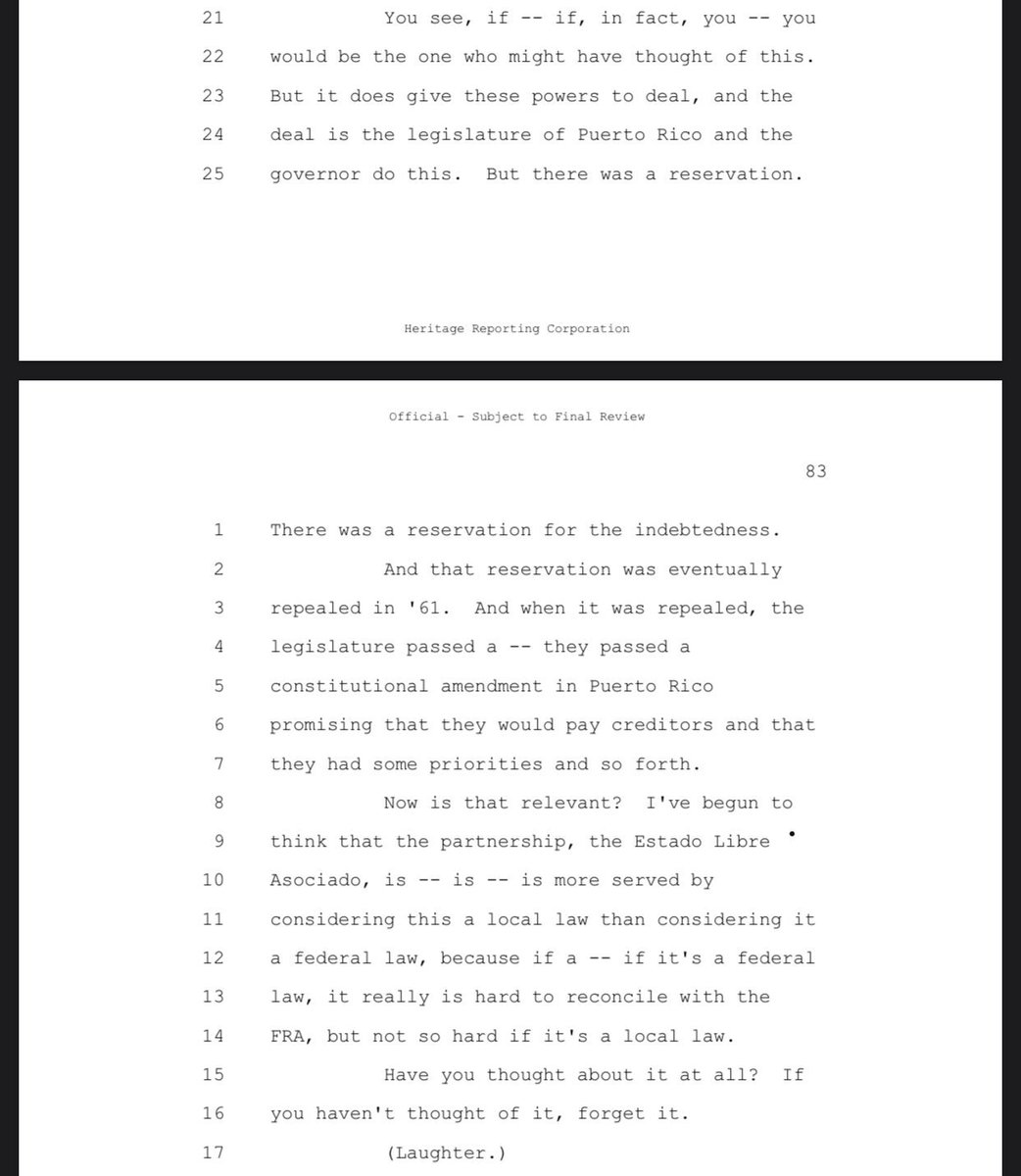#PROMESA OA
#PROMESA
#PROMESA
#PROMESA
#PROMESA
#PROMESA
#PROMESA
Verilli argues the DC mayor is particularly important, because appointed by Jefferson and Madison
#PROMESA
Here is where Verilli pounces.
#PROMESA
#PROMESA
#PROMESA
#PROMESA
#PROMESA
#PROMESA
#PROMESA
#PROMESA
#PROMESA
#PROMESA
#PROMESA
#PROMESA
Wall says it depends on which of the 4 or 5 tests Respondents propose that you use.
#PROMESA
#PROMESA
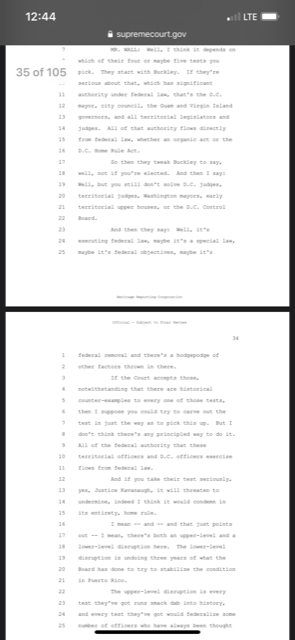
#PROMESA
#PROMESA
Wall argues no - you have to ask if Congress's decision to use Art. I or Art. IV was something it could do.
#PROMESA
#PROMESA
Wall argues you still look to whether Congress gave any powers that it couldn't under Art. IV.
#PROMESA
#PROMESA
#PROMESA
He concludes with a few words on the remedy. Ryder applies to adjudicators. Buckley applies to the Board. There, the actions were allowed to stand. They will need a stay of 3-6 mos to get confirmation.
#PROMESA
#PROMESA
#PROMESA
#PROMESA
RBG points out it exercises these powers on behalf of PR, its citizens and its agencies.
#PROMESA
CJ Roberts points out that its oversight is of PR. Everything Olson just listed relates solely to PR.
#PROMESA
#PROMESA
#PROMESA
#PROMESA
Justices Gorsuch and Alito get in a bit of a traffic jam trying to jump in, with Gorsuch coming out the winner.
#PROMESA
Olson denies the Governor has the authority to file Title III claims. Gorsuch asks who could then? And Olson says that prior to #PROMESA, no one could.
Olson points to the Franklin Trust case. Breyer asks, if there was sufficient will, couldn't PR just create this authority?
#PROMESA
After pressing, he acknowledges there is a great deal of money at stake for his client, although no exact figures.
Olson acknowledges there is a small matter that his client has agreed not to challenge, even without waiving their rights. RBG asks what the difference is between the two cases.
#PROMESA
#PROMESA
RBG asks about the DC Control Board, which has that scheme. Olson says its an unsettled question, but that Board has much more limited powers regarding local authority.
#PROMESA
Olson argues it wouldn't mean anything. It would have no effect.
#PROMESA
RBG asks about the DC Code - isn't that passed by Congress?
#PROMESA
Kagan says this is the test Wall and Verilli are arguing for. So what is Olson's test?
#PROMESA
#PROMESA
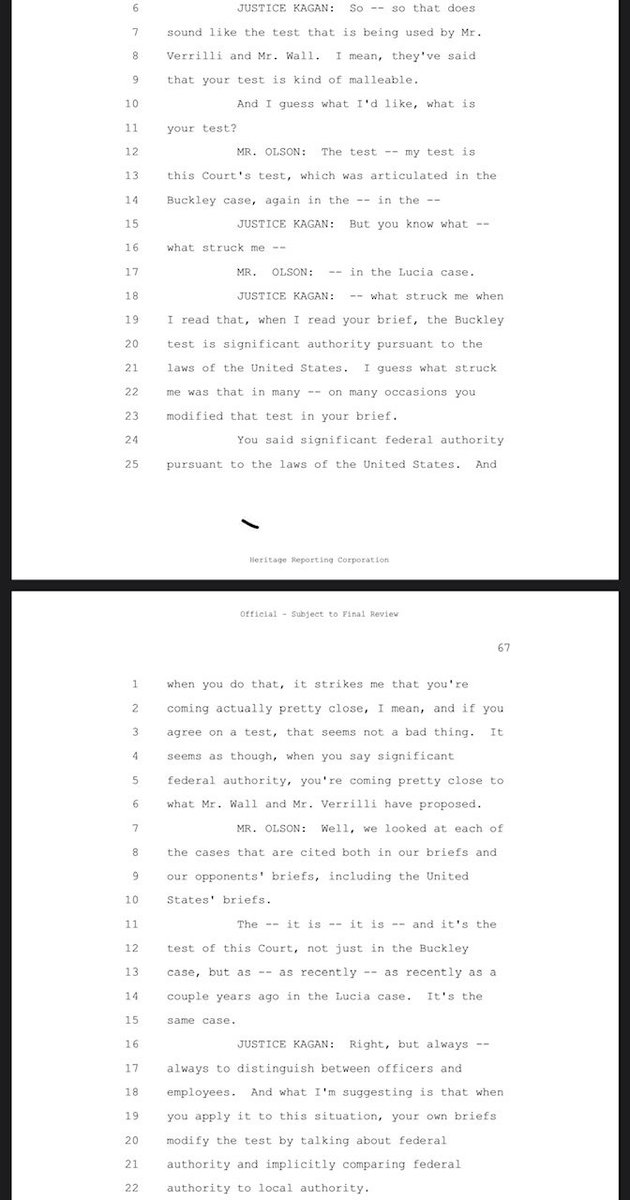
After some back and forth between Gorsuch and Olson, they end up here.
#PROMESA
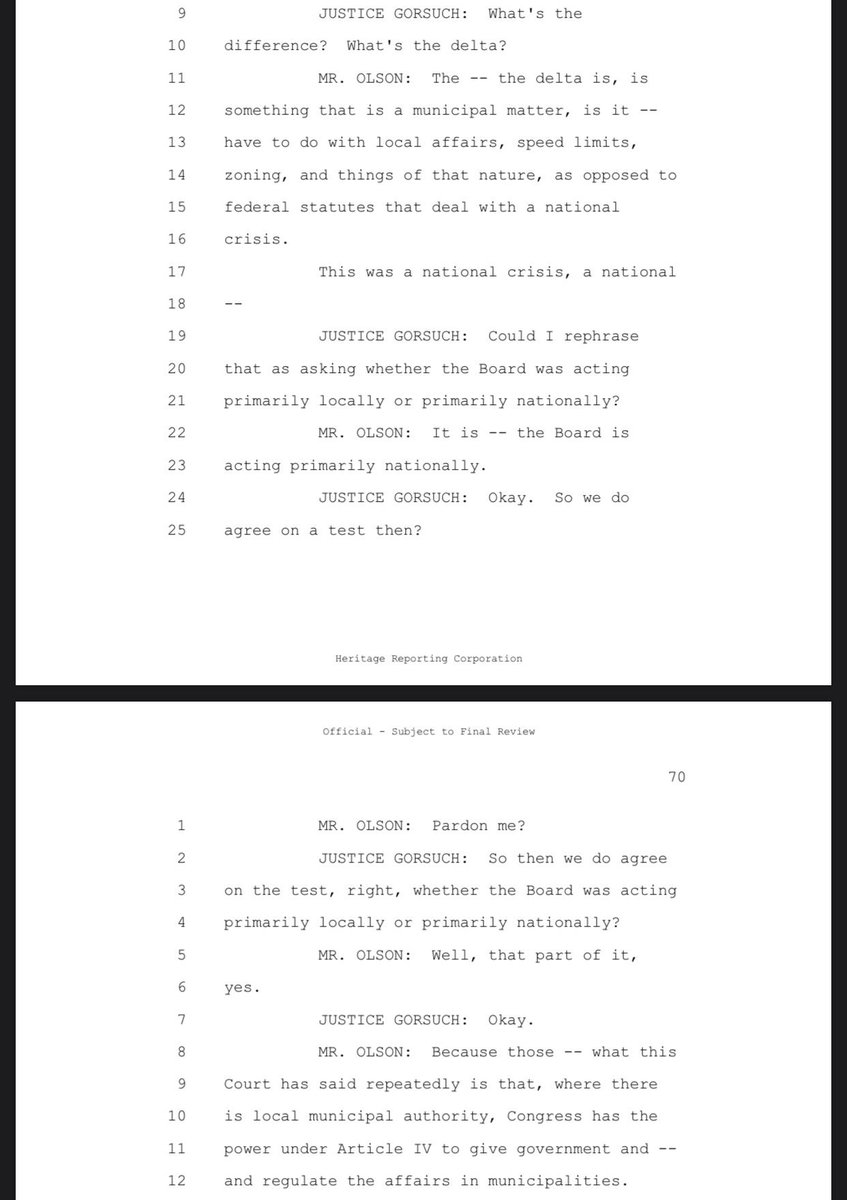
So the CJ asks if the problem is size? If it were one district in PR, that would be local?
#PROMESA
#PROMESA
Olson says it's part of the theory. And then his argument gets some much-needed levity.
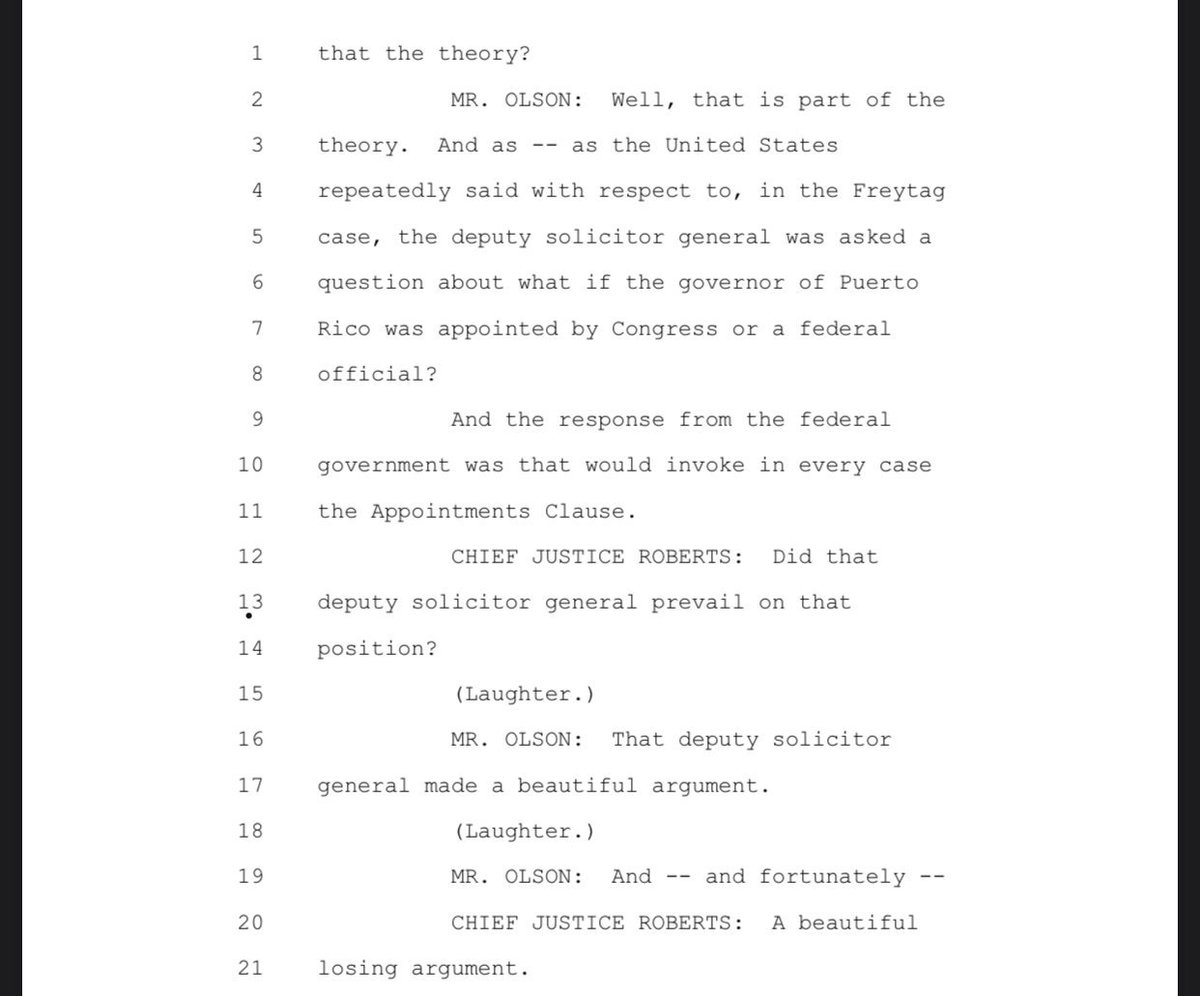
After some hemming and hawing, and a reiteration of the question from Kavanaugh, Olson acknowledges that Art. II wouldn't apply.
Olson goes to Ryder. Sotomayor points out the distinction between adjudicative and other officers and invites Olson to explain why that distinction is wrong.
#PROMESA
RBG steps in to say that the Board doesn't perform any adjudicative functions. An Art. III court is. Here, the Board is acting as a petitioner.
He concludes by pointing out that the Board is appointed by POTUS, removal by him, and thus that is who they must fear, per Bowsher.
#PROMESA
#PROMESA
Instead he brings up the Federal Relations Act.
#PROMESA
#PROMESA
She then goes back to asking the Court to overrule the Insular Cases.
Mendez-Colburg notes that the Mollen brief relies on them, and the other parties did in the lower courts, when they couldn't be overruled.
#PROMESA
Mendez-Colburg agrees, so Roberts says he doesn't think they're implicated here. She notes the Court overruled Korematsu last term.
She denies it is a local law, and when pressed mentions a Weiss case, involving DC judges.
#PROMESA
He argues that you can't look to the effects of the Board's actions to determine if they are OotUS.
#PROMESA
Limtiaco, he argues proves their point. That statute was administered by local Guam officials.
#PROMESA
#PROMESA
#PROMESA
CJ Roberts allows Verilli to respond.
#PROMESA






